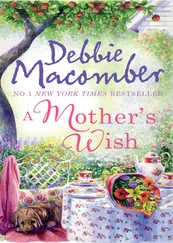My dad had been working a lot in the United States for most of the last decade, leaving my mum at home in Britain, but in 1985 he took a contract in Oslo. The following year I decided to go out and stay with him for a while. We’d only seen each other sporadically while he was in America and I missed him. We spoke on the phone, but it wasn’t the same as being part of each other’s lives. In fact, on arrival, I realised there was a rather major piece of news he hadn’t shared with me – a girlfriend called Eppy, who had two kids, aged about 12 and 15. He had never mentioned this part of his life and I was surprised, to say the least.
The night I arrived in Norway, Dad took me to stay with some Norwegian friends so he could explain to me about his living arrangements on neutral territory. He wasn’t sure how I would react, but he told me that his marriage to Mum had been unhappy (what a surprise!) and that he had been with Eppy for several years. The children were hers, not his. I was sad that he hadn’t been able to share this with his children sooner. Despite his free-thinking scientific brain, he was still conditioned by society to keep up a pretence and avoid admitting that his marriage had failed.
I must be jinxed! Not long after I arrived, the company Dad was working with went out of business, so he wasn’t needed and returned to the States. I loved it in Norway, even in winter temperatures of minus 20 degrees, and I decided to stay. I got a job selling jewellery on a market stall, which turned out to be virtually the only stall in the area that had a licence to trade. There were dozens of illegal stalls, and when the police came by, everyone would quickly load their goods under my stall and disappear.
Lots of different nationalities lived side by side – Palestinians, French, Algerians, Germans, Americans – selling jewellery, trinkets and dodgy records. There was a great community feeling. The Norwegian company Dad had worked with had paid the lease on his house for almost another year, so I stayed on when he left and shocked the neighbours by letting a few of my bohemian friends move in. One of them taught me to ski, which I took to straight away. Living in Oslo was fantastic. Great cross-country or downhill ski runs were only a short bus, tram or boat ride from the city. To me, getting there was as much fun as being there. They weren’t flashy slopes with smart restaurants and multiple chairlifts, like you find in the fashionable resorts in the Alps – just clean, family-oriented spaces. That didn’t cost anything.
A girl I met while working on the jewellery stall took me to the Café de Paris one night and I immediately loved the friendly atmosphere. The owners were a Norwegian-Algerian woman and her French husband, both of whom treated the club like an extension of their home, rather than a place of business, and it worked. It had such a warm, welcoming atmosphere, and it was a second home for a lot of foreigners – French-speaking Africans, African-Americans from the NATO base and of course a wide-eyed English girl. When they offered me a job behind the bar, I decided to accept. I continued working on my jewellery stall by day and took up residence behind the bar of the Café de Paris by night. If they hadn’t paid me to be there, I would have spent all my money on the other side of the bar. It was home-from-home and my time there would prove to be one of those rare life-changing experiences because I met loads of people who would become friends for life: my best friend Vera, Greg (the friend who was with me the day I collapsed in Bradford), Chris Merchant, who was an English singer, the American club manager Dwayne, and Mildred Jones, the singer who eventually coaxed me to Singapore.
Meeting Mildred for the first time was kind of scary. She was larger than life at over 6 feet tall, yet she wore vertiginous high heels, glamorous dresses covered in seed pearls and glitter, full make-up and long lacquered nails – and that was just for breakfast! On stage she was a colossus: incredibly imposing, oozing sex appeal and with the voice of a diva. During her long career, which started in the late 1950s, she had been instrumental in encouraging clubs to open their doors to black artists. She had toured Russia with B. B. King and had played all over Scandinavia, as well as in her native America. She wrote her own songs, full of double entendres, and always had love-struck admirers milling around. She was in her 50s by the time I met her and didn’t encourage these men (some very young). I once overheard her say, ‘Honey, I’ve got underwear that’s older than you!’ But they were like flies to flypaper.
When Omar first met Mildred, he thought she must be a man, due to her stature and deep voice. Singapore was home to lots of lady-boys and it took me a long time to convince him that she was 100 per cent woman under the seed pearls and glitter. Too much woman for most men to handle.
Mildred was playing in the piano bar at the Grand Hotel, just down the road from the Café de Paris. She was usually starving when she finished her set at 1 a.m., so Dwayne would send up a plate of food covered in silver foil. It became my job to take up her late-night supper, and when she noticed that I had fake nails too, she asked if I would come back the next day to help repair hers: she would batter them nightly on the piano and nail salons were crazy money. My hand was trembling the first time I squeezed out the little blobs of glue and positioned the nails in place, but somehow they didn’t go wonky, so I acquired another (unpaid) job. I was in awe of her for ages, until I got comfortable with the astonishing presence and came to appreciate that beneath the glitz she was a down-to-earth southern belle with a filthy sense of humour and a raucous laugh.
Greg was a drop-dead gorgeous American who worked for NATO, and we nicknamed him ‘GQ’ because he was always so impeccably dressed. I dated him briefly, but it’s weird going out with someone who has more hair products than you and takes much longer to get ready to go out in the evening. We drifted easily into friendship and I lived platonically in his flat with him for a couple of months when I needed somewhere to stay.
Vera was working behind the bar in the Café de Paris the first week I was there. I heard it was her birthday and I took a cake from the pantry, but I couldn’t find any candles, so I stuck in a light bulb with ‘Happy Birthday’ scrawled on it. I left it in the fridge for her to find and she thought it was funny. We just clicked. Like me, she loved travelling and music (she plays piano beautifully) and, of course, men. Unfortunately her taste was a bit dodgy in those days and she fell for the club doorman.
Despite (or rather because of) the fact that we were the only girls working at the Café de Paris, at one time Dwayne, who was a gay, black American, used to make us do all the heavy work. He said he didn’t want to risk injuring one of ‘his boys’ and would get our names mixed up. When it was pointed out what our names were, he’d dismiss us with an imperious wave, saying, ‘You all look the same to me.’ He was wonderfully eccentric, very stylish, always strutting around in a long, flapping coat and Cuban heels, and I absolutely loved working with him.
I stayed in Oslo for a couple of years, longer than I had stayed anywhere in my adult life at that point, but then things began to change at the Café de Paris as my friends upped and moved. Mildred had gone back to her hometown of Houston, Texas, and she called and invited me to work there with her for a while. She said she needed someone to help her sort out the copyright on her songs. I reckoned I could manage that, and of course I wanted to see more of the States. My dad was living there again, so I’d be able to squeeze in a visit to see him and Eppy (whose real name, I found out, was Ethel).
Читать дальше












